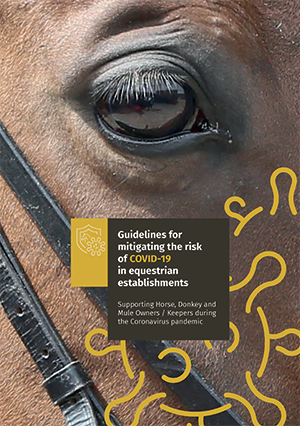
Hot on the heels of a survey that highlighted UK horse owners’ key concerns during the coronavirus pandemic, two of the survey’s authors – equine scientist Dr David Marlin and Dr Jane Williams (Hartpury University) – have collaborated to produce a comprehensive set of guidelines to help equestrian establishments put in place recommended measures to minimise the risk of spreading the virus.
The advisory document provides details of the responsible practices that need to be adopted by owners and keepers, based on credible research and national government guidance.
The initiative is in direct response to the survey findings that identified that 73% of respondents felt the pandemic had a significant detrimental impact on their mental health, citing stress regarding who would be able to care for their horse in the event of illness or need to self-isolate, as a key factor.
The survey also evidenced that, while livery yards were strong on providing hand washing or hand sanitising facilities, the majority – especially DIY yards – had limited covid-19 plans in place and many struggled to implement the standard measures prescribed by government within an equestrian environment.
TIPS
Alongside the information detailing precautionary steps which should be rolled out across all equestrian settings, the eight-page dossier also offers those who care for horses, donkeys or mules tips on how to be suitably prepared to ensure the welfare of their animal, in case they fall victim to the virus or are forced to self-isolate and therefore stay away from the yard.
In addition to the guidelines, which are endorsed by the National Equine Welfare Council, World Horse Welfare, RSPCA, The British Horse Society and British Equine Veterinary Association, Dr Marlin and Dr Williams have produced a poster that provides a clear visual means of communicating how to reduce the risk of covid-19 transmission on any equine yard.
The guidance and downloadable poster can be found at:
https://www.drdavidmarlin.com/guidelines-for-mitigating-the-risk-of-covid-19-in-equestrian-establishments/


